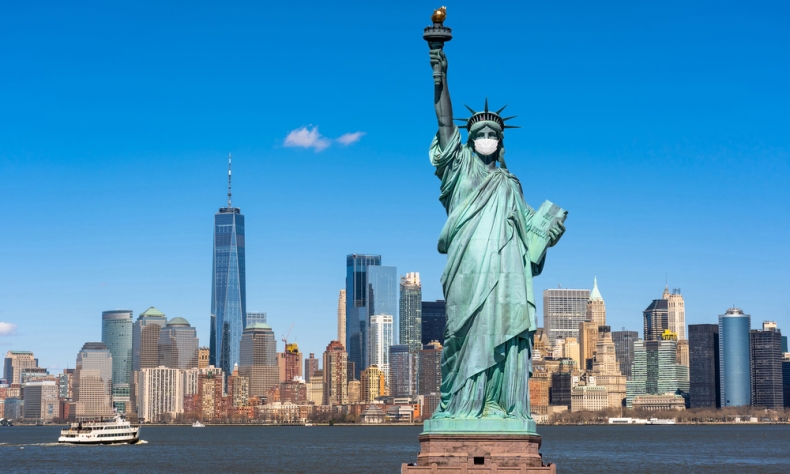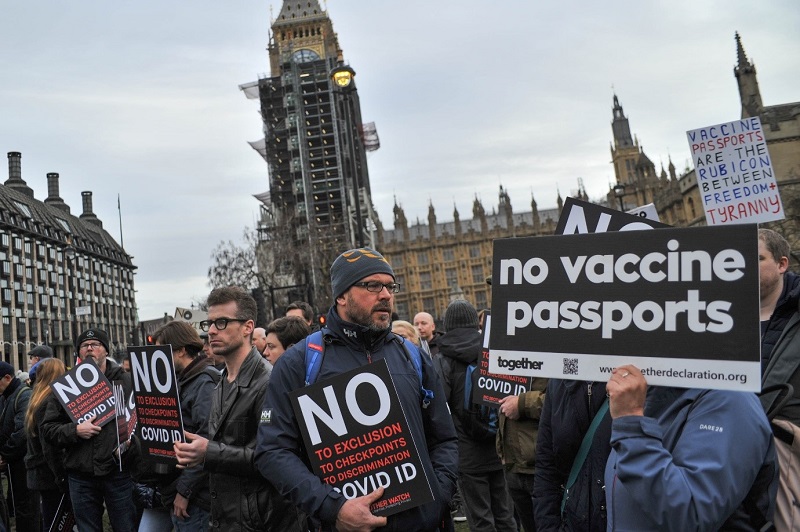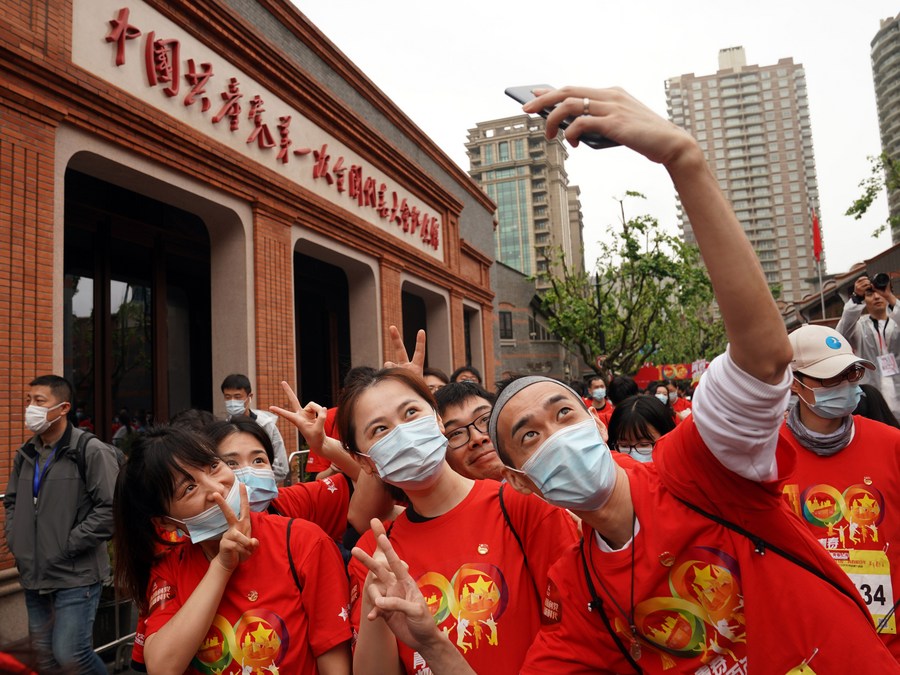Have Western Democracies Caught COVID-19?

If Western democrats better understood China, they would realize that by working together the whole world could achieve common prosperity, prosperity for all.
The Economist Intelligence Unit (EIU) circulated the latest version of its Democracy Index on February 10, 2022. The title “The China Challenge” reveals much about insecurities of the western world.
The EIU, the research and analysis division of The Economist Group, has been producing its much-cited index since 2006 and observes that 2021 was the worst year on record for Western-style democracy.
Of course, democracy, like beauty, resides in the eye of the beholder. The EIU defines and measures democracy as it is understood in London, near the self-styled “mother of parliaments.” Not surprisingly, therefore, the index suggests that British democracy is 54 percent better than the world average.
The Democracy Index is a composite of 60 binary and trichotomous measures: electoral process and pluralism; functioning of government; political participation; political culture; and civil liberties. Scores on all five components fell in 2021 with those relating to civil liberties and political culture falling fastest. Trends assessed over 15 years also point to a decline in four out of the five dimensions assessed. The sole exception is political participation which increased, especially between 2010 and 2020.
So, if Western-style democracy is in retreat, why should this be so? The report singles out the COVID-19 pandemic which it asserts “resulted in an unprecedented withdrawal of civil liberties” with “the imposition of lockdowns,” “restrictions on travelling,” and the “introduction of ‘green passes’ requiring proof of vaccination” for “participation in public life.”
These measures reflect public health policies designed to prevent the spread of infection and limit deaths. However, the Economist Intelligence Unit, though highly respected, belongs to what might be termed the intellectual wing of the libertarian political right. Libertarians question the state’s right to curb individual freedoms even if the intent is to save lives.
Demonstrable evidence of the salience of such views is apparent in the refusal of many Republicans in the United States to wear masks, and in the preparedness of the U.K. Prime Minister to place his right to attend parties above the letter of the law and the well-being of his colleagues.

The street protests in Athens, Helsinki, Paris and Stockholm in January this year, repeated across Austria, Belgium, the Czech Republic, and Germany, illustrate citizens’ willingness to put personal values ahead of the common good. The Democracy Index was lowered, not because of the protests, but because the public health measures restricted civil liberties.
But while the EIU blames “authoritarian pandemic responses” for “undermining democracy,” it acknowledges that this merely “compounded existing negative trends” and that Western-style democracy “is struggling across the world.” It reports that “democracy is not delivering for many people,” that “trust in government and parties has plummeted,” that there has been “an upsurge of popular participation and protest,” and that “people’s attachment to democracy is weakening.”
These findings explain the Report’s unlikely title: “The China Challenge.” China is just one of the 167 countries and territories covered by the report. Moreover, democracy with Chinese characteristics, as described in the government white paper “China: Democracy That Works,” differs markedly from the Western version. Ranked only 148 according to the EIU Democracy Index, China offers an alternative model that has the support of its population. Hence, the EIU perceives China as providing a potent challenge to Western democracy.
The EIU report acknowledges some of the achievements of the Chinese model. It recognizes that China has transitioned from “a poor developing country into an economic superpower” and, moreover, that the “success over the past 40 years owes much to its unique political model.” It predicts that “China will be the most important economic power by far in 2050.”
However, the report’s authors insist that China has adopted a capitalist economic system “even if the ruling Communist Party of China still makes reference to socialism.” But they fail to appreciate that the Chinese model has a different purpose. Whereas Western, free market capitalism seeks to maximize profits for shareholders, China’s socialist market economy aims to achieve “common prosperity,” prosperity for all.
This misunderstanding runs deep. The authors explain that their expert assessors reduced the score assigned to China for civil liberties when they learned of common prosperity as a policy goal. They were concerned by the 2021 policy to encourage large companies to allocate a portion of their profits to philanthropic causes – the so-called “third distribution.” The EIU definition of democracy appears to rule out the possibility of meaningful wealth sharing.
In the report, China is said to “lag behind the major Western powers” on another dimension of democracy – the functioning of government. This is despite acknowledgement that “by any measure of state continuity and competence the Chinese state must be judged among the best in the world.” The reason given is “the absence of any mechanisms of accountability, checks and balances, or transparency.” Elsewhere, overlooking its own evidence, the EIU report asserts that “lack of democratic scrutiny or accountability has allowed corruption to flourish” and that “China’s elites are often self-serving, and abuse of power is not uncommon.”
So, what is the evidence that is overlooked? The 2017-2020 World Values Survey (WVS) that the EIU team claim to use to “aid” their “interpretative endeavour.” This indicates that, while 37 percent of Americans think that “most or all people working for state authorities are involved in corruption,” only 14 percent of Chinese citizens believe the same.

Similarly, whereas 95 percent of Chinese respondents have a great deal — or quite a lot — of confidence in their national government, only 33 percent of Americans do so. Indeed, 29 percent of Americans have no confidence at all in their government. This is also true of 15 percent of Canadians and 19 percent of Australians.
The EIU authors admit that it’s a value judgment as to whether one political system is better than another. However, they insist that political systems should be judged according to the degree to which they enable “the good life.” This, they presume, must include freedom from want, equal treatment and opportunity, political and religious freedom and “the avoidance of stark economic and social inequalities.” They note that this definition omits “the striving for individual fulfilment that finds affirmation in the pursuit of non-material ends such as community, justice and virtue.”
Community, justice and virtue are values embraced by the Chinese people. The WVS indicates that more of them value equality over freedom than believe the opposite – 65 percent compared to 34 percent. The reverse is true of Americans: 78 percent place freedom first, only 21 percent equality. Sixty-four percent of the Chinese population believe that most people can be trusted whereas merely 37 percent of Americans do. Twenty-three percent think government should give top priority to beautifying cities and the countryside. Not a single American in the WVS sample thought to mention beauty.
The challenge posed by China is that it is successful. Its people are happier with their political system than Americans or even Germans; average scores out of 9 are 7.5, 4.5 and 6.3 respectively. Regarding freedoms, Chinese and German citizens score almost the same (7.0 and 7.1). They feel equally free and say that they have the same degree of control over their lives. Similarly, few Germans or Chinese think that there are human rights abuses in their respective countries – eight percent and 11 percent respectively. The equivalent figure for America is 43 percent, four times higher.
It is not COVID-19 that is killing Western democracy. Rather unconstrained capitalism is creating inequality and resulting in groups with very divergent interests. It is not surprising, therefore, that Americans have less faith in the democracy practised in their polity than Chinese citizens have in theirs (average scores of 6.1 and 7.1). Although the EIU report fails to mention this fact, it concludes that it is:
“far better that the U.S. and the world’s democracies demonstrate the advantages of their system of government by re-democratizing their politics, rather than by trying to isolate or contain China.”
True. But if Western democrats better understood China, they would realize that by working together the whole world could achieve common prosperity, prosperity for all.
 Facebook
Facebook
 Twitter
Twitter
 Linkedin
Linkedin
 Google +
Google +







